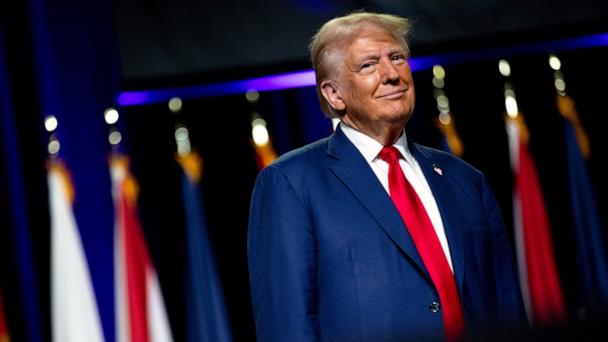Trump's federal prosecution ends as appeals court drops him from classified docs case

One day after special counsel Jack Smith moved to dismiss both his cases against President-elect Donald Trump, the U.S. Court of Appeals for the Eleventh Circuit complied by dropping Trump from Smith's appeal of his classified documents case, ending Trump's prosecution on federal charges.
"Appellant's motion to dismiss the appeal as to Donald J. Trump only is GRANTED," the Eleventh Circuit's clerk wrote in a one-sentence order Tuesday.
Smith is continuing to appeal U.S. District Judge Aileen Cannon's dismissal of the case with Trump's two co-defendants, his longtime valet Walt Nauta and Mar-a-Lago property manager Carlos De Oliveira.
In a filing on Tuesday, Smith urged the appeals court to reverse Cannon's decision to toss the classified documents case based on the constitutionality of Smith's appointment as special counsel.
Smith moved to drop Trump from the case Monday due to a long-standing Justice Department policy that bars the prosecution of a sitting president.
Trump pleaded not guilty last year to 37 criminal counts related to his handling of classified materials, after prosecutors said he repeatedly refused to return hundreds of documents containing classified information ranging from U.S. nuclear secrets to the nation's defense capabilities, and took steps to thwart the government's efforts to get the documents back.
Trump, along with Nauta and De Oliveira, also pleaded not guilty to allegedly attempting to delete related surveillance footage at Trump's Mar-a-Lago estate.
Judge Cannon dismissed the case against all three defendants this past July on the grounds that Smith's appointment as special counsel overseeing the case was unconstitutional because he was not appointed by the president or confirmed by Congress.
Smith, in Tuesday's filing, urged the Court of Appeals for the 11th Circuit to reverse Cannon's "flawed" conclusion so he can continue the case against Nauta and De Oliveira.
"The Supreme Court held more than 50 years ago that Congress vested the Attorney General with the power to appoint special prosecutors like the Special Counsel, and the text, context, and history of the four statutes the Supreme Court identified, as well as the long history of special-counsel appointments, confirm that Nixon was correct," the filing said.
In a statement Monday, John Irving, a lawyer for De Oliveira, said, "The Special Counsel's decision to proceed in this case even after dismissing it against President Trump is an unsurprising tribute to the poor judgment that led to the indictment against Mr. De Oliveira in the first place. Just because you can doesn't mean you should. If they prefer a slow acquittal, that's fine with us."
Tuesday's filing was Smith's last against Trump as a defendant.
"The government has moved to dismiss this appeal as to Donald Trump. If granted, defendant Trump will not appear in the caption in future filings in this case," Smith wrote in a footnote of the filing.
Smith's other case against Trump, involving the former president's alleged efforts to overturn the 2020 election results, was dismissed Monday at Smith's request, due to the Justice Department's presidential immunity policy.







